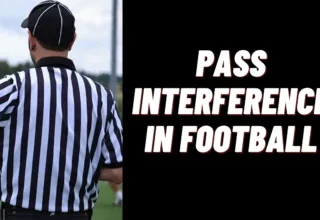
The Grandeur and Legacy of Professional Wrestling Championships
Introduction:
Professional wrestling, a unique blend of athleticism, storytelling, and entertainment, has captured the hearts of millions around the world. At the pinnacle of this dynamic industry are the coveted professional wrestling championships, symbols of excellence and achievement. These titles are not merely props; they are the embodiment of the blood, sweat, and tears shed by the competitors in their quest for glory. In this article, we will delve into the grandeur and legacy of professional wrestling championships, exploring their significance, evolution, and the impact they have on both performers and fans alike.
The Birth of Championships:
The roots of professional wrestling championship can be traced back to the early days of the sport. As wrestling evolved from its carnival and sideshow origins to a more organized and regulated form, the need for titles to signify superiority became apparent. One of the earliest recognized championships was the World Heavyweight Championship, a title that signified the best in the world. Legends such as George Hacken Schmidt and Frank Gotch laid the groundwork for what would become a cornerstone of professional wrestling.
Evolution of Championships:
As professional wrestling expanded in popularity, so did the number and variety of championships. Different promotions began introducing their own titles, each with its unique design and set of rules. The NWA (National Wrestling Alliance), formed in 1948, played a pivotal role in creating a standardized set of championships that were recognized across multiple territories. This move laid the foundation for a more cohesive and organized championship structure within the industry.
The 1980s and the Rise of Global Wrestling:
The 1980s marked a transformative period for professional wrestling, with the emergence of larger-than-life characters and the global expansion of the industry. Promotions like WWE (World Wrestling Entertainment) and WCW (World Championship Wrestling) gained immense popularity, introducing new championships and amplifying the significance of existing ones. The WWE Championship, the company’s premier title, became synonymous with wrestling excellence, with iconic champions like Hulk Hogan, Randy Savage, and The Ultimate Warrior etching their names into the championship’s storied history.
The Monday Night Wars:
The late 1990s witnessed the intense rivalry between WWE and WCW during the Monday Night Wars. Championships took center stage as both promotions sought to outdo each other in creating compelling storylines and showcasing marquee matchups. The WCW World Heavyweight Championship, held by the likes of Sting, Ric Flair, and Goldberg, became a symbol of the promotion’s dominance, while WWE responded with the Attitude Era, featuring titles like the WWE Championship and the Intercontinental Championship as focal points of their programming.
The Attitude Era’s Impact:
The Attitude Era not only brought a more mature and edgy product but also elevated the status of championships. Titles were no longer just accolades; they became essential elements of character identity and storyline progression. Stone Cold Steve Austin’s rebellious pursuit of the WWE Championship and The Rock’s charismatic reigns added a layer of intensity and drama that resonated with fans, making wwe belt replica matches must-see events.
The Ruthless Aggression Era:
Following the Attitude Era, WWE entered the Ruthless Aggression Era, characterized by a new generation of talent and a shift towards a more sports-oriented presentation. Championships continued to play a crucial role, with stars like John Cena, Randy Orton, and Batista rising to prominence and carrying the torch for the company. The WWE Championship and the World Heavyweight Championship became the top prizes in this era, symbolizing the pinnacle of a wrestler’s career.
The Modern Era:
In the current landscape of professional wrestling, championships remain central to the industry’s appeal. WWE’s brand extension led to the creation of brand-specific titles, such as the Universal Championship and the WWE SmackDown and Raw Women’s Championships. This approach enhances the depth of the roster and provides more opportunities for talent to showcase their skills on a grand stage.
Outside WWE, promotions like AEW (All Elite Wrestling) have introduced their own set of championships, contributing to the diversity and competitiveness of the wrestling landscape. The AEW World Championship and AEW Women’s World Championship, for example, symbolize excellence in a promotion that has quickly become a major player in the industry.
The Impact on Performers:
For professional wrestlers, winning a championship represents the pinnacle of their careers. It is a validation of their hard work, dedication, and ability to connect with the audience. Championships elevate a wrestler’s status within the industry, opening doors to new opportunities and increased visibility. Moreover, holding a championship often comes with added responsibilities, as champions are expected to be the standard-bearers for their promotion and deliver standout performances.
Championships also serve as powerful storytelling tools. Feuds and rivalries often revolve around the pursuit or defense of a title, adding a layer of intensity and personal stakes to the narrative. The emotional investment from both performers and fans in these storylines contributes to the enduring appeal of professional wrestling.
The Connection with the Audience:
Professional wrestling championships hold a special place in the hearts of fans. The sight of a wrestler hoisting a championship belt overhead is a moment of triumph that resonates with audiences worldwide. Fans form strong attachments to their favorite titles and the wrestlers who hold them, creating lasting memories and emotional connections.
Championship matches, with their high stakes and dramatic conclusions, are often the highlights of major wrestling events. Whether it’s a WrestleMania main event or a headline bout at an AEW pay-per-view, the allure of champion belt adds excitement and anticipation to the viewing experience. The shared experience of witnessing a title change or a successful title defense creates a sense of camaraderie among fans, reinforcing the communal aspect of professional wrestling.
Conclusion:
Professional wrestling championships are more than just shiny belts; they are symbols of achievement, ambition, and the indomitable spirit of the competitors who vie for them. From the carnival origins of the sport to the global spectacle it has become, championships have been a constant, evolving alongside the industry itself. They are the embodiment of the dreams pursued by wrestlers, the emotional investment of fans, and the enduring legacy of a form of entertainment that continues to captivate audiences worldwide. As the industry evolves further, one thing remains certain: the grandeur and legacy of professional wrestling championships will continue to shape the landscape of sports entertainment for generations to come.




